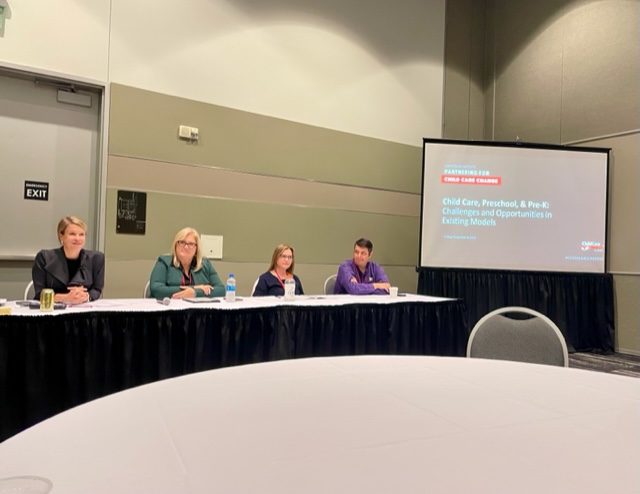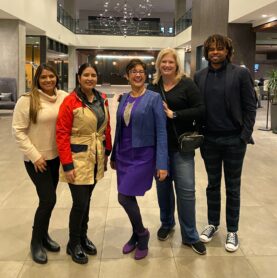Improving the inventory, cost, and quality of child care for families requires a joint effort among advocates, law makers, and other key stakeholders. Strategies for improvement were the focus of the recent Child Care Aware of America Leadership Institute conference that CCRC staff attended in Washington State.
This year’s theme was “Partnering for Child Care Change.” The conference provided collaborative tools and approaches to rebuild, transform, and uplift the industry, ultimately providing families with a more equitable child care system. At the conference, members of CCRC’s Government Relations team engaged in critical conversations to move child care forward in a post pandemic world. The conference was also an opportunity to participate in meaningful reflection and action planning to build anti-racist and equitable organizations.
Advocates and industry leaders from across the country shared what they are doing as an individual organization and through community partnerships to improve the early care and education systems in their states.

CCRC Chief Strategy Officer Donna Sneeringer was one of the speakers at the event. She served as part of a panel from three states who discussed: “Child Care, Preschool and Pre-K: Challenges and Opportunities in Existing Models.” As states move forward with investments in early learning, many are building out opportunities for children who are just about to enter school. Sneeringer explained how these programs, like Pre-K and Transitional Kindergarten (TK), have been implemented in California with differing levels of input from and support for the child care system. The panel included perspectives from states with programs, examples from existing models, and opportunities for discussion as the U.S. begins to chart a course forward for birth through age 5 early learning.
“I really enjoyed learning how we can transform the child care system into a more equitable system through what the speakers called “liberatory design,” says CCRC Government Relations Specialist Yvonne Perez. “Liberatory design defines the challenges in our community by using a variety of lenses. These lenses include empathizing with the most impacted, building relational trust to create space for deep listening, and learning more about what the community identifies as their needs. After the challenges are addressed through the variety of lenses, a plan of action is created to take a new approach for a more equitable child care system in the community.”
The conference also touched on the importance of collaboration between Resource and Referral agencies and philanthropic community groups to transform the field. CCRC regularly attends conferences and conventions to share as well as gain insights on child care and early learning from other experts and industry leaders across the country.


